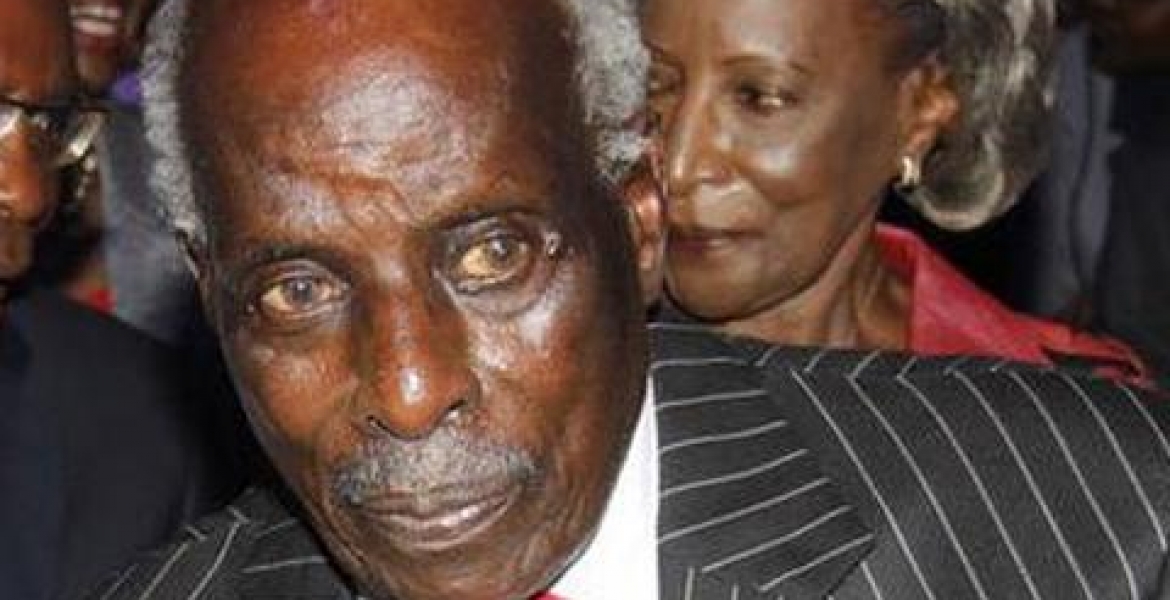
The passing of Jeremiah Gitau Kiereini on Monday evening marks the end of an era for one of the architects and front row witnesses of the good, the bad and the ugly of contemporary Kenya history.
To his admirers, Kiereini represents one of the finest of the pioneer post-independence titans of the public and private sectors, a man who scaled the heights of the Public Service to reach the helm as Chief Secretary and Head of Public Service from 1979 to 1987.
In his 2014 memoirs, Kiereini takes great pride in being part of the team of post-independence pioneering policy technocrats, administrators and private sector players who laid the foundations of modern Kenya’s society and economy.
From his days as a young colonial District Officer in the early 1960s he would scale the heights of public service to become a District Commissioner, Defence Permanent Secretary in founding president Jomo Kenyatta’s administration before President Daniel arap Moi elevated him to head the public service upon succeeding Kenyatta in 1978.
Kiereini would become Moi’s pointman and nominee in many boardrooms in companies where the then president had interests.
“Kiereini, the late Central Bank Governor, Philip Ndegwa, former VP Moody Awori, former Attorney General Charles Njonjo, former Kenyatta Cabinet Secretary Duncan Ndegwa and the late Kenneth Matiba were Moi’s business buddies for many years . . . They introduced him to the business world and helped him to set up his business empire. Of course, they used his influence to grow immense wealth, spreading their tentacles to all sectors of the economy,” the source said.

The companies they controlled included the East African Breweries, The Unga Group Ltd, Kenchic, Farmers Choice, and Transitional Bank.
After leaving the Public Service, Kiereini spent years gallivanting in the boards of the various blue-chip companies.
However, to his detractors, Kiereini represents a class of post-independence African children of privilege, who, had the fortune of good education and were expected to serve as beacons of enlightened leadership, but turned a ravenously predatory lot.
Kiereini’s tenure as head of public service in the 80s coincided with the most repressive period in Kenya’s history when suppression of civil liberties rolled out after the attempted coup in 1982.

Kiereini and his contemporaries at the helm of the CMC Holdings , who included Njonjo, were in 2012 implicated by a South African audit firm in a scandal involving secret off-shore accounts into which a select group of directors squirreled suspect earnings for decades.
One of CMC Holdings reliable clients in the period when motor vehicle prices inflation racket lasted was the Kenya Government, the biggest consumer of one of CMC Holdings most popular brands and spare parts, the Land Rover.
At the time of his death, aged 90, Kiereini was still trying to clear his name from the probity stains in the courts. He was born in 1929. He and his wife Eunice Muringo, a former Chief Nursing Officer and former personal nurse to President Mzee Jomo Kenyatta, had two sons Mburu and Githae both now deceased.

He also takes to the grave some of the closely held secrets he and his cohorts were witnesses to in higher echelons of the State around events that shaped modern Kenya.
Like his contemporary, Charles Nyachae, who writes in his memoirs that he had no idea who was administering secret oaths in Central Kenya in 1969, (where he was Kenyatta’s provincial commissioner for Central Province) following the assassination of Cabinet Minister Tom Mboya, Kiereini’s memoirs, A Daunting Journey, are evasive about the 1982 coup attempt by a section of the Air Force when he was Chief Secretary and head of public service.
The aftermath of events of 1982 continue to affect the national political terrain to date, especially the ruthless purge of key senior players from the Gema community that Moi inherited from Jomo Kenyatta’s government.
Although Kierieni was a Kikuyu, and head of the public service, his memoirs gloss over the events of the attempted coup.

However, late GG Kariuki’s Illusion of Power (2001), explicitly states that Moi exploited the coup fiasco in the same manner Nazi Germany’s Adolf Hitlter used the Night of the Long Knives (1934) to consolidate his grip on power and rid himself of potential rivals in the civil service, the army and politics.
“In the middle of the following week (After August 1,1982, the day of the failed coup) , the chief secretary, MrJeremiah Kiereini, informed me that cabinet ministers and some of other regular visitors to the State House, now required prior permission for entry… Shortly there after, my securtiy detail apart from Gatheru (personal body guard) was withdrwan…”
GG, who was cabinet minister for Lands and Settlement then, recounts how a terrifying picture soon emerged that the purge against suspected coup plotters soon turned into a ruthless purge against civil servants, military and cabinet members from the Kikuyu community from government.
“Little did we know that the aftermath of the attempted coup would be turned against the Gikuyu community in politics as well as in the civil service, although no one in the community was either crucially involved or implicated. The inclusion of Major General P. M Kairiuki (court martialed head of the disgraced Airforce) and Police Commissioner Ben Gethi (detained at Kamiti after the coup) appeared to have been a political move with the intention of giving the purge on coup (scheme) a national outlook.”